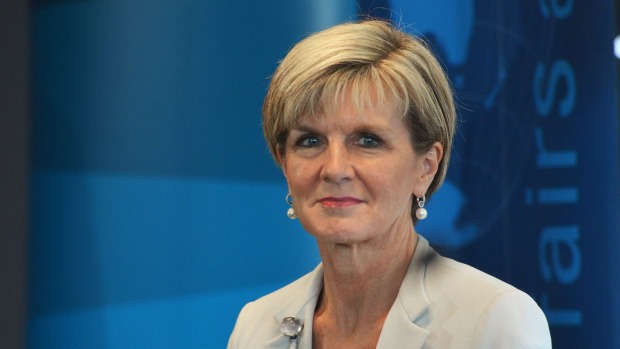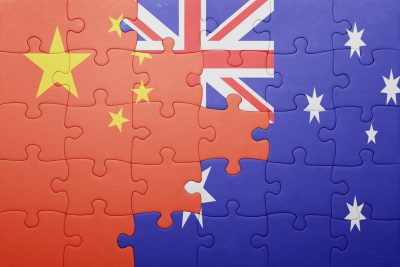Australia’s China Syndrome
Syndromes can make for cringe worthy, nervous laughter. To see the Australian Prime Minister, Malcolm Turnbull, struggle with reconciling China the bully of influence with China the resource hungry friend supplied the press with one such spectacle on Tuesday morning. Larded with suffocating clichés, Turnbull could speak of the greatest multicultural society on earth (forget the United States or any other comparisons) and those million or so members of the Australian-Chinese family who had made Australia what it is. Lurking, as ever, is the next diplomatic storm, and the next allegation, of Chinese influence in Australia.

China’s Foreign Minister Wang Yi has been doing his own bit to ruffle Australian policy. Foreign Ministry spokesman Lu Kang quoted Wang’s remark that
Australia “take off tinted glasses [and] see China’s development from a positive perspective”.

He also spoke of the “difficulties” that had beset relations between the countries “which even inflicted impacts on bilateral cooperation in some respects.”

Australia’s own Foreign Minister, Julie Bishop, has been very busy keeping her own tinted glasses on.
“I get on very well with Foreign Minister Wang Yi, we’ve known each other for a very long time.”
Recent discussions with Wang were “very warm and constructive”. Pure deceptive theatre indeed.
Within Australia’s own parliament, members are itching to lob grenades at China’s channels of influence, a tendency that is now producing a form of avid competition. Andrew Hastie, chair of the intelligence and security committee, availed himself of parliamentary privilege to out a certain “Co-conspirator 3 or CC-3” from the shadows, a person familiar to both the Liberal and Labor parties.

Businessman Chau Chak Wing, it seems, had not only busied himself lining the pockets of both sides of the parliamentary aisle to the tune of some $200,000 (donations are not bribes, it seems); he had also been attempting to woo the former president of the UN General Assembly, John Ashe, with a tidy sum. He had, in Hastie’s words of forced concern, “close contact with the United Front, the influence arm of the Chinese Communist Party in 2007”.
“I share it with the house because I believe it to be in the national interest. My duty, first and foremost, is to the Australian people and the preservation of the ideals and democratic traditions of our Commonwealth.”

The Chinese Communist Party, Hastie claimed, was “working to covertly interfere with our media, our universities and also influence our political processes and public debates”.
While such revelations are delivered with a sense of heavy moral responsibility, much of it is stretched. Trade Minister Steve Ciobo was almost dismissive in claiming that the content was hardly novel. Turnbull dumped some cold water on Hastie’s fire by claiming that “the specific allegations that were made… were not new.” But getting on the China bandwagon of condemnation is all the rage. Parliament has already sought to curb that vague and immeasurable term “influence” with legislation that muddies rather than clears the water. When the National Security Legislation Amendment (Espionage and Foreign Interference) Bill 2017 was introduced, it signalled a new front in an inchoate war that, on closer inspection, merely looks like a good stab at civil liberties and an attempt to harness paranoia.
A “new and balanced secrecy regime” criminalising the disclosure of “inherently harmful information” was introduced alongside “offences that criminalise covert and deceptive activities of foreign actors that fall short of espionage but are still intended to interfere with our democratic systems and processes or support the intelligence activities of a foreign government.”
Such words are hard going in the wake of one overwhelming reality: Australia’s satellite status and broader importance in the US imperium. Should Australia ever wish to bend over for Beijing – and here, Hastie and company should take comfort – a few Pentagon goons are bound to be dispatched Down Under to right matters. Washington’s indifference to sending an ambassador of clout, or any ambassador at all for some eighteen months is simply an acceptance that the good politicians of Canberra will behave. Head boys and girls are simply not required.
Acknowledgment of Australia’s efforts has also been forthcoming. One senior official in the Pentagon with a brief covering US defence policy in Asia, Randy Schriver, was rather pleased by the spurt of legislative activity seeking to rein in those nasty foreign influences.
“I think [Australia’s] woken up people in a lot of countries to take a look at Chinese activity within their own borders.”
The country had “done us a great service by publicising much of this activity and then taking action.” With such rounded approval from empire, what could go wrong?
The field of political influence will always be a hostage to trends. As things stand, Australian citizens are being treated to daily doses of anti-Chinese hysteria. It is hardly surprising that such distractions are necessary consumption for a government desperate to keep its oar in regarding the electorate. Villains are always necessary in political bouts, even if they pay your bills, buy your products, and fill the coffers.

No comments:
Post a Comment
Comments always welcome!